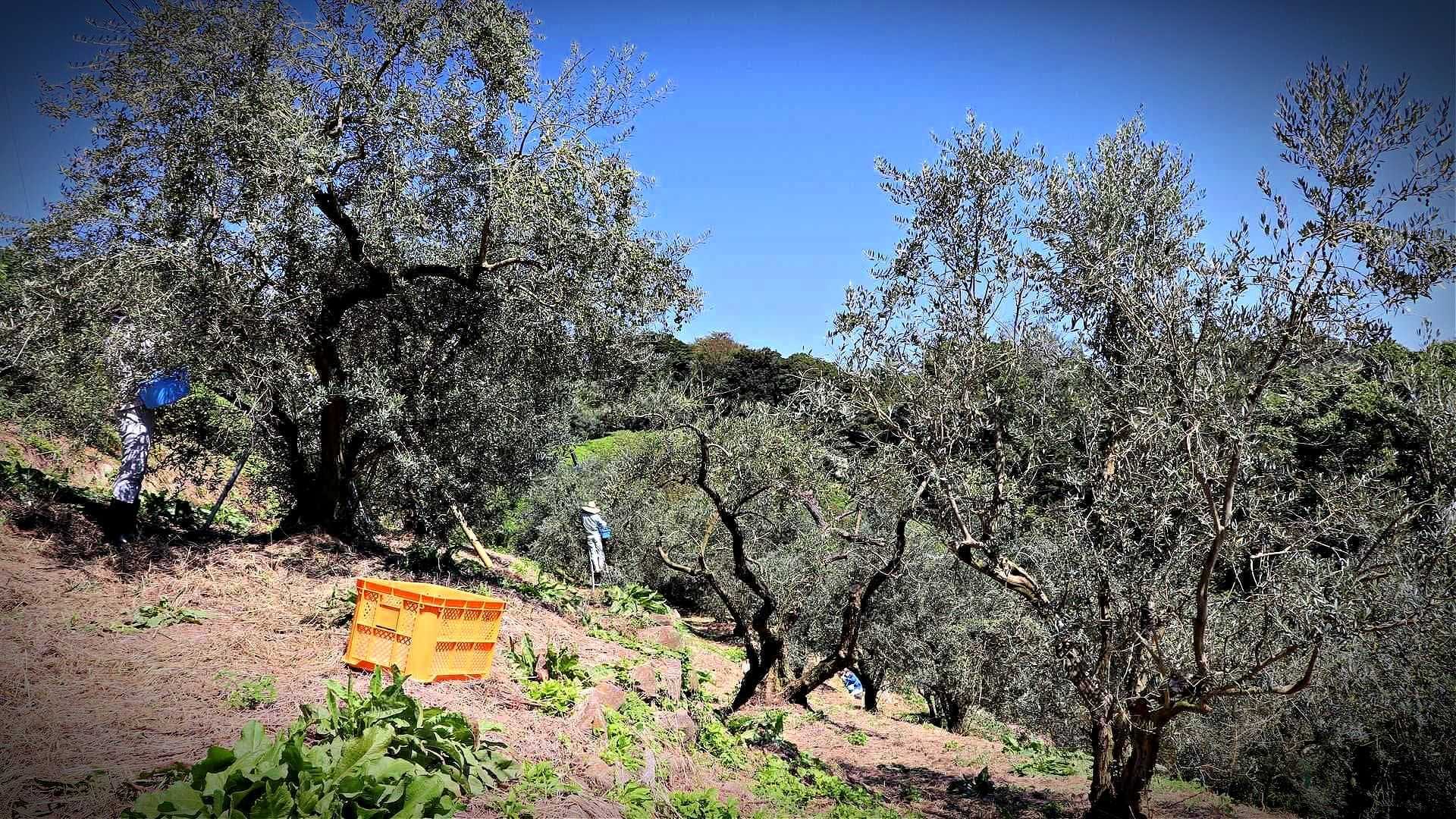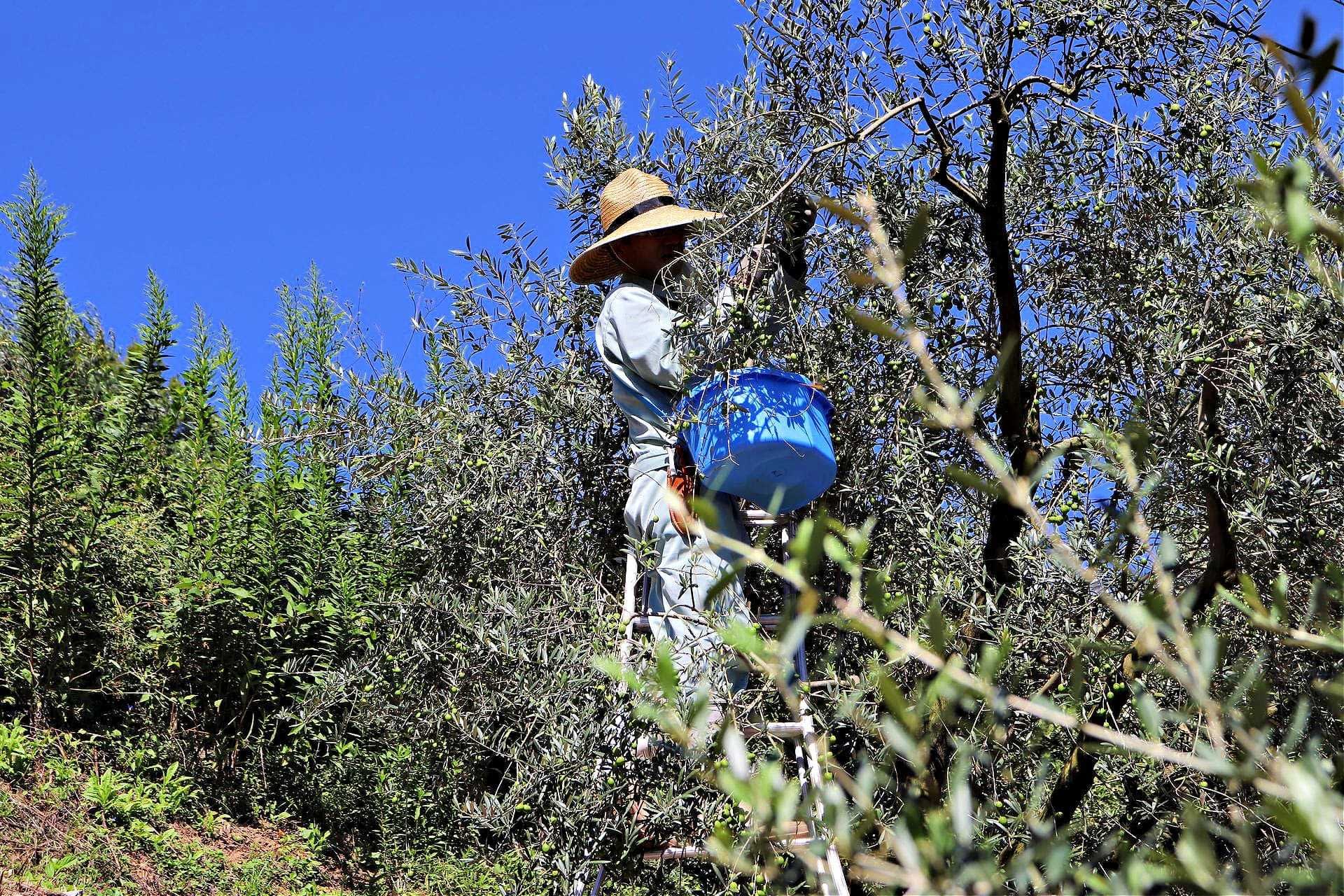Japan’s Olive Harvest Gets Underway Amid Typhoon Season
Producers in Japan expect this year’s yield to match last year’s. However, typhoon season has led to different outcomes across the country.
 Ushimado Olive Garden
Ushimado Olive Garden Flooding, landslides, and heavy rainfall are among the challenges facing Japanese olive farmers as the first cool days of autumn took place in the country’s northern regions.
Further down the East Asian archipelago, the weather is also changing, with winds becoming stronger and clouds darker as the olive harvest gets underway in central and southern regions of the country.
Maybe it is global warming affecting the weather, but it really seems as if the harvesting season gets earlier every year.
“We look out for possible typhoons and extreme phenomena which typically occur during the harvesting weeks,” Tatsuya Okumura, managing director of Crea Farm, told Olive Oil Times.
His company, located in central Japan’s Shizuoka Prefecture, produces some of the most renowned Japanese extra virgin olive oils, two of which were awarded at the 2021 NYIOOC World Olive Oil Competition.
See Also:2021 Harvest Updates“Up to now, we did not experience heavy weather events, so we are quite excited for our new harvesting season,” Okumura said.
Given the rainy summer, growers at Crea Farm have been examining their trees to find any sign of pathogen or pests. “We found a very good situation,” he said.
Like other producers in central Japan, Okumura estimates that this year’s olive oil yield will be comparable to the last season. According to data from Juan Vilar Strategic Consultants, Japan produced about 30 tons of olive oil in the 2020/21 crop year.
“We do not expect significantly larger volumes in the future since our trees are currently full of fruits,” he added.
The harvesting season is also starting on Shodoshima, an island off the coast of south-central Japan known for its unique climate, which closely resembles Mediterranean weather.
Some of the country’s best extra virgin olive oil is produced on the island. However, producers said that this year’s harvest has been affected by severe weather events since early spring.

Ushimado Olive Garden
“The rainy season began just before flowering, and as we examined the fruit set, which looked affected by the rain, we felt it not to be good as usual,” Nobuyuki Hiraiwa, president of Agri Olive Shodoshima, told Olive Oil Times.
Hiraiwa, another NYIOOC winner, emphasized how heavy and frequent rainfall inundated his groves in August and September.
“We did not have to face extreme events, but due to the high volumes of rainfall during the summer, we are on the lookout for potential large outbreaks of pathogens and pests in the future,” Hiraiwa said.
He explained that “fruits seem to be ripening earlier, which does not represent a problem for the overall quality since our olives are harvested according to their ripeness. Still, olive oil yields might be slightly reduced this year.”
Hiraiwa thinks that climate change may be affecting the weather on the island, forcing him to begin harvesting earlier and earlier each year.
“Maybe it is global warming affecting the weather, but it really seems as if the harvesting season gets earlier every year,” he said, adding how some cultivars are specifically affected by the climatic changes.

Ushimado Olive Garden
“We have to proceed with Lucca harvest earlier, and it seems it is now time to review our harvesting schedule and pressing processes accordingly,” Hiraiwa said.
Rain has helped the olive trees of the Ushimado Olive Garden, a company in central-southern Japan that has earned various accolades at the NYIOOC.
“Yes, we also had to face the effect of typhoons and heavy rainfall. But in the end, those brought more water in August, which is typically dry, so that is good for overall fruit volumes,” said Hiroshi Kurihara, the technical director at Ushimado.
Farmers at Ushimado have just started harvesting the many old and large olive trees that were planted on the island in the 1940s, to which many others have been added over time, Kurihara added.
The farms’ projections are for volumes comparable to those of the previous season. Regarding quality, the company expects top results.
“On September 22, we began conducting a few tests of our new olive oil,” he said. “It has a very round bouquet, even if clearly bitter and pungent, the perfect basis for our Ushimado and Ushimado Superior extra virgin olive oils.








